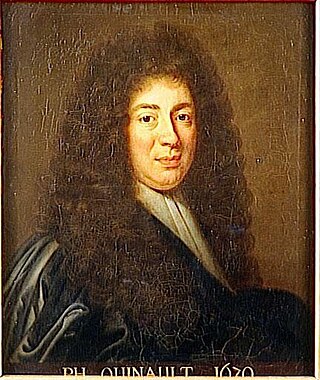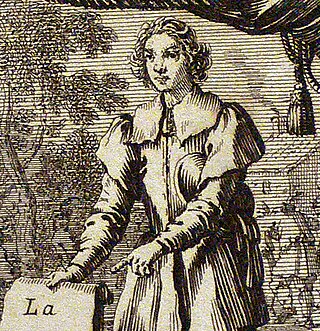| ID | Title |
|---|
| LWV 1 | Le temps |
| LWV 2 | Les plaisirs |
| LWV 3 | Dialogue de la Guerre avec la Paix |
| LWV 4 | Les bienvenus |
| LWV 5 | La revente des habits de ballet et de comédie |
| LWV 6 | Psyché, ou La puissance de l'amour |
| LWV 7 | La galanterie du temps |
| LWV 8 | Amour malade |
| LWV 9 | Alcidiane |
| LWV 10 | Première marche des mousquetaires |
| LWV 11 | La raillerie |
| LWV 12 | Intermèdes de Xerxes |
| LWV 13 | Ballet mascarade |
| LWV 14 | L'impatience |
| LWV 15 | Les saisons |
| LWV 16 | Les facheux |
| LWV 17 | L'Hercule amoureux |
| LWV 18 | Les arts |
| LWV 19 | Les Noces de village |
| LWV 20 | Le mariage forcé |
| LWV 21 | Les amours déguisés |
| LWV 22 | Plaisirs de l'Ile enchantée |
| LWV 23 | Entractes d'Œdipe |
| LWV 24 | Mascarade du Capitaine |
| LWV 25 | Miserere |
| LWV 26 | O Lachrymae fideles |
| LWV 27 | La naissance de Vénus |
| LWV 28 | Les gardes, ou Les délices de la campagne |
| LWV 29 | L'Amour médecin |
| LWV 30 | Le triomphe de Bacchus dans les Indes |
| LWV 31 | Branles |
| LWV 32 | Les muses |
| LWV 33 | La pastorale comique |
| LWV 34 | Le Sicilien, ou L'Amour peintre |
| LWV 35 | 18 Trios pour le coucher du roi |
| LWV 36 | Le carnaval |
| LWV 37 | Plaude laetare Gallia |
| LWV 38 | George Dandin |
| LWV 39 | La grotte de Versailles |
| LWV 40 | Flore |
| LWV 41 | Monsieur de Pourceaugnac |
| LWV 42 | Les amants magnifiques |
| LWV 43 | Le bourgeois gentilhomme / Der Bürger als Edelmann |
| LWV 44 | Marches et batteries de tambour |
| LWV 45 | Psyché |
| LWV 46 | Ballet des ballets |
| LWV 47 | Le triomphe de l’amour et de Bachus (pastorale, 1672, as described and named in the manuscript) |
| LWV 48 | Marche |
| LWV 49 | Cadmus et Hermione |
| LWV 50 | Alceste, ou Le triomphe d'Alcide |
| LWV 51 | Thésée |
| LWV 52 | Le carnaval |
| LWV 53 | Atys |
| LWV 54 | Isis |
| LWV 55 | Te Deum |
| LWV 56 | Psyché |
| LWV 57 | Bellérophon |
| LWV 58 | Proserpine |
| LWV 59 | Le triomphe de l'amour |
| LWV 60 | Persée |
| LWV 61 | Phaëton |
| LWV 62 | De profundis |
| LWV 63 | Amadis |
| LWV 64 | 1. Dies irae |
| 2. Benedictus |
| LWV 65 | Roland |
| LWV 66 | Marches pour le régiment de Savoie |
| LWV 67 | Quare fremuerunt |
| LWV 68 | Idylle sur la paix |
| LWV 69 | Le temple de la paix |
| LWV 70 | Pièces de symphonie |
| LWV 71 | Armide |
| LWV 72 | Airs pour le carrousel de Monseigneur |
| LWV 73 | Acis et Galatée / Acis und Galatea |
| LWV 74 | Achille et Polyxène |
| LWV 75 | Marches |
| LWV 76 | 1. Ingrate bergère |
| 2. Aunque prodigoas |
| 3. Scoca pur tutti |
| 4. A la fin petit Desfarges |
| 5. D'un beau pêcheur la pêche malheureuse |
| 6. Un tendre coeur |
| 7. Courage, Amour, la paix est faite |
| 8. Non vi è più bel piacer |
| 9. Le printemps, aimable Silvie |
| 10. Tous les jours cent bergères |
| 11. Viens, mon aimable bergère |
| 12. Qui les aura, mes secrètes amours |
| 13. Où êtes-vous allez, mes belles |
| 14. Nous meslons toute notre gloire |
| 15. Pendant que ces flambeaux |
| 16. La langueur des beaux yeux |
| 17. On dit que vos yeux sont trompeurs |
| 18. Que vous connaissez peu trop aimable Climène |
| 19. Si je n'ay parlé de ma flamme |
| 20. En ces lieux je ne vois que des promenades |
| 21. Ah qu'il est doux de se rendre |
| 22. J'ai fait serment, cruelle, de suivre une autre loi |
| 23. Le printemps ramène la verdure |
| 24. Depuis que l'on soupire sous l'amoureux empire |
| 25. Sans mentir on est bien misérable |
| 26. Venerabilis barba capucinorum |
| LWV 77 | 1. Anima Christi |
| 2. Ave coeli munus supernum |
| 3. Dixit Dominus |
| 4. Domine salvum fac regem |
| 5. Exaudi Deus deprecationem |
| 6. Iste Sanctus |
| 7. Laudate pueri Dominum |
| 8. Magnificat anima mea |
| 9. O dulcissime Domine |
| 10. Omnes Gentes plaudite |
| 11. O sapientia in misterio |
| 12. Regina coeli |
| 13. Salve regina |
| 14. Domine salvum fac regem |
| 15. Exaudiat te Dominus |
| 16. Jubilate Deo |
| 17. Notus in Judea Deus |
| 18. Il faut mourir, pécheur |
| 19. Si je n'ay parlé de ma flamme |
| 20. En ces lieux je ne vois que des promenades |
| 21. Ah qu'il est doux de se rendre |
| 22. J'ai fait serment, cruelle, de suivre une autre loi |
| 23. Le printemps ramène la verdure |
| 24. Depuis que l'on soupire sous l'amoureux empire |
| 25. Sans mentir on est bien misérable |
| 26. Venerabilis barba capucinorum (air à boire) |
|









